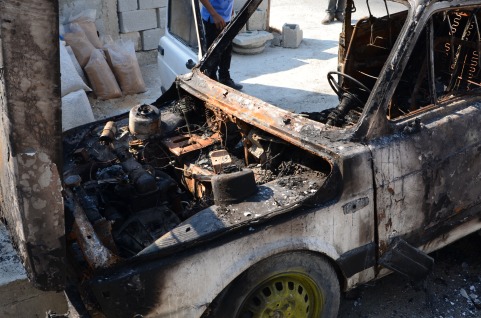Tag: Settlers
-
Settlers burn olive trees in Sarta
27th September 2013 | International Solidarity Movement, Nablus Team | Sarta, Occupied Palestine Settlers burnt around 35 olive trees in the Palestinian village of Sarta late on Thursday night, following the area being declared a closed military zone in preparation for the construction of a new settler road. Around 60 settlers from the illegal Bruchin settlement and…
-
Israeli army take two men and hand them to settlers of Esh Kodesh
7th September 2013 | International Solidarity Movement, Nablus Team | Qusra, Occupied Palestine Last 29th of August, Israeli soldiers detained two municipal workers from Qusra as they were taking the village’s trash to the local dump. The two men were later attacked by Israeli settlers. Residents of Qusra fear that greater collusion between the army…
-
Army intimidate village ahead of an illegal land grab
26th August 2013 | International Solidarity Movement, Nablus Team | Bruqin, Occupied Palestine Today, Monday 26th August, Israeli occupation forces invaded the village of Bruqin in the early hours of the morning. The Israeli army then proceeded to enter twelve houses and arrest 11 young men from the village. The men were aged between 18…


